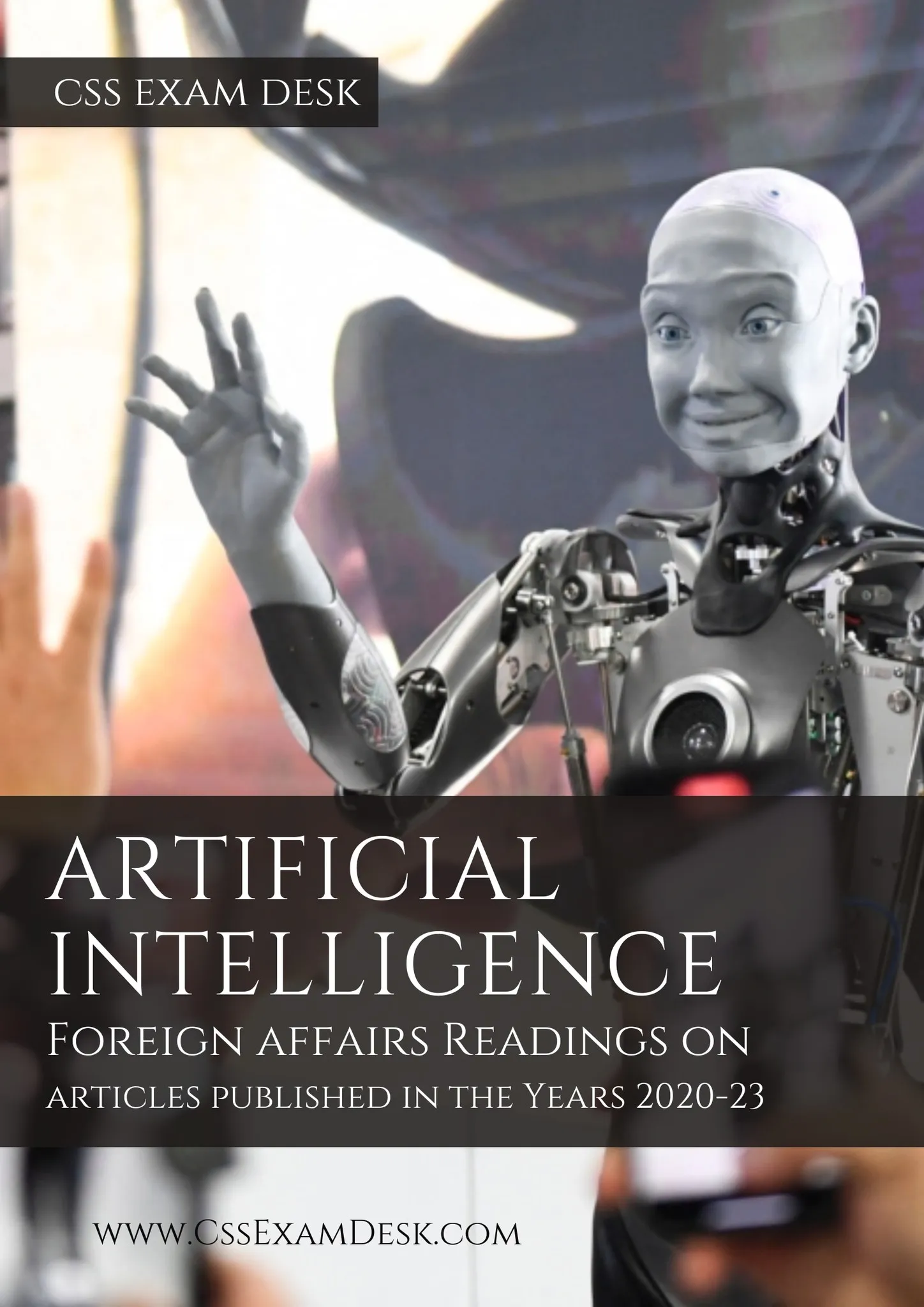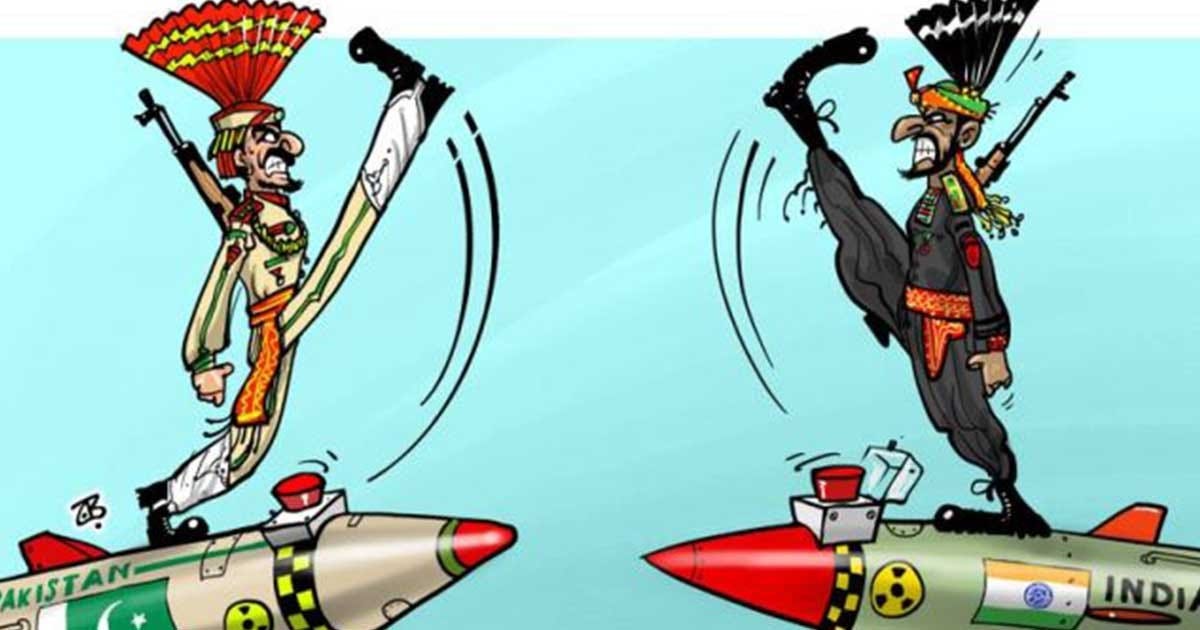Post-Cold War Global Order by Shanza Faiq (CSS 2018, FSP)
The Globalization process that has underpinned the post-Cold War global order continues to impact the themes and actors in the contemporary global order. Globalization has spawned the opposite trends of both integration and fragmentation. While the developed parts of the world become increasingly interconnected- and not only in economic terms- other regions. have become increasingly uncoupled from this development. Critics of globalization point out that the developing world is vulnerable to economic exploitation and poverty that are one of the causes of the rise of political violence that has today affected societies.
The post-Cold War problems – dissolution of states, ethnic strife, rise of nationalism, increasing disparity between wealth and poverty, questions of identity, terrorism, the rise of non-state actors, asymmetrical and proxy warfare or the fear of terrorists’ access to WMDs are all the more intense and far- reaching factors because of the breakneck speed of technological advancement that continues to impact mobility, communication, transportation and above all, the dissemination of ideas, ideologies and information.
Today transnational actors are increasingly influential in international polities, and are involved in the making of states’ foreign policies, most notably in implementation. Foreign ministries not only lose authority to other ministries but they also increasingly have to take into account, and cooperate with, non-state actors. Governments rely on and work with NGOs and private companies to distribute their development aid and to help settle armed conflict. It is not only the interests of great powers that can influence the foreign policy formulations in less powerful states but also the impact of non-governmental organizations and transnational corporations.
Facing transnational problems, states increasingly shift governance to international institutions. One example is the development of UN peacekeeping operations. Before 1990, the Security Council had almost never considered overriding the principle of non- interference. Since the end of the Cold War, the Security Council has slowly given up its reluctance, even authorizing invasions like in Somalia or Haiti. But not only intrastate wars but also terrorism has – in particular since the terrorist attacks on 11 September 2001 increasingly come to be seen as a threat to peace, which justifies great power interventions into the internal affairs of weaker states. Probably the most famous and controversial example are privatized military firms (PMFs) like the Blackwater.
After 9/11 US foreign policy sharply turned toward neo-conservatism, according to which US military and economic power were to be used to impose liberal democratic regimes as a means of disseminating world peace. This was put into practice by George Bush Junior in Afghanistan in 2001 and Iraq in 2003.
The Afghanistan and Iraq wars had two significant regional consequences:
Firstly, they shattered the balance of power in the Persian Gulf, leading to the rise of Iran. It was Washington that eliminated the ideological threat against the Ayatollah’s regime from the Taliban regime in Afghanistan, and later the military threat posed by Saddam Hussein’s regime in Iraq. This further led to an increase in the historical hostility between Sunnis and Shi’ites.
Secondly, regime change in Iraq and the Bush administration’s mission to democratize the Middle East had unintended consequences in the form of the Arab Spring. US did not help the democratic forces in the ME. This resulted in regional political, economic and military turmoil.
The war in Iraq in particular undermined international law, weakened international institutions, and, along with the wars in Afghanistan, Libya and Syria, eroded stability, and peace throughout the Middle East and elsewhere.
The US and its allies entered protracted conflicts which disorganised states, created vacuums, and opened up the spaces for armed groups and fanatical extremists to thrive among the chaos. Of course, there was a great deal to deplore about the autocratic regimes in these countries and the systematic abuse of human rights that was all too typical in each one of them. However, the transformation of countries is a complex and difficult process. War is a blunt and weak instrument to change regimes, and it rarely works.
The exceptional conditions which shaped the Second World War and after, which allowed the allies to occupy Germany and Japan and begin a process of reform, enabled the long-term reconstruction of these states and their democratic transformation. In contemporary circumstances, where democratic societies are hesitant to commit troops and are highly sensitive to the loss of national lives, on the one hand, and where globalization links people across the world, highlighting the costs and sacrifices involved in engagements of all kinds. on the other, these conditions are simply absent.
– Written by Shanza Faiq (47th CTP, CSS 2018 Topper, FSP).



